Serbian president threatens intervention as ethnic tensions flare in northern Kosovo
Tensions have heightened in northern Kosovo after ethnic Serbs on Sunday blocked roads in protest against the arrest of a former ethnic Serb police officer, with the Serbian president warning that his troops are ready to intervene if peace doesn't prevail.
The roads in Kosovo, Serbia's former province that proclaimed independence in 2008, were blocked with heavy vehicles and trucks a day after Serbian President Aleksandar Vucic said he would ask the NATO-led peacekeeping force in Kosovo to allow the deployment of 1,000 Serb troops in north Kosovo.
The roadblocks came despite the postponement of the December 18 municipal election opposed by Serbs in Kosovo, reports said.
Explosions and shootings were reported after at least six roadblocks were set up in solidarity with officer Dejan Pantic, who was charged on December 10 with domestic terrorism after being accused of being a perpetrator of attacks on the elections commission in northern Kosovo.
Read more:
Kosovo accuses Serbia of seeking ‘conflict’ by provoking ethnic Serbs
Kosovo Prime Minister Albin Kurti called on the NATO-led international peacekeeping force in Kosovo to intervene in the region and remove the barricades.
"We call KFOR to guarantee the freedom of movement (and remove roadblocks)...KFOR is asking for more time to finish this...so we are waiting," he said.
Serbia's President Vucic said on Sunday that Kosovo's Serbs must not engage in violence against NATO troops and peacekeepers of the European Union mission tasked with patrolling northern Kosovo, the European Union Rule of Law Mission in Kosovo (EULEX).
"No one, under no circumstances should be involved in attacks ... on Eulex and KFOR," he told Reuters in his office in Belgrade. On being asked whether Belgrade would seek to de-escalate the situation in northern Kosovo, he replied: "Absolutely."
Vucic said on Saturday that Belgrade would ask KFOR to let Serbia deploy its armed forces in Kosovo. However, he also acknowledged that there was no chance of permission being granted for Belgrade’s military intervention in Kosovo.
In the meantime, Kosovo police said they came under fire in different locations close to a lake bordering Serbia late Saturday. The Kosovo forces said they had to return fire in self-defense. There were no reports of injuries.
Also, EULEX said a stun grenade was thrown at one of its armored vehicles on Saturday evening, but no one was injured.
EU foreign policy chief, Josep Borrell, warned the conflicting sides that the bloc will not tolerate violence against the members of peacekeeping forces.
"#EU will not tolerate attacks on @EULEXKosovo or use of violent, criminal acts in the north. Barricades must be removed immediately by groups of Kosovo Serbs. Calm must be restored," Borrell tweeted.
#EU will not tolerate attacks on @EULEXKosovo or use of violent, criminal acts in the north. Barricades must be removed immediately by groups of Kosovo Serbs. Calm must be restored. EULEX will continue to coordinate w/Kosovo authorities & KFOR.
— Josep Borrell Fontelles (@JosepBorrellF) December 11, 2022
All actors must avoid escalation.
"Barricades must be removed immediately by groups of Kosovo Serbs. Calm must be restored," he said, adding that the international personnel will continue to coordinate with Kosovo authorities and urging all actors to avoid escalation.
NATO also condemned the attack on the European mission in Kosovo, saying such attacks are "unacceptable and those responsible must be held to account," a spokesperson of the alliance, Oana Lungescu, said on Twitter.
Kosovo declared independence from Serbia in 2008. The country's independence is recognized by some 110 countries including the United States, Britain and most other Western countries.
However, Serbia does not recognize Kosovo's independence and Belgrade has been encouraging groups of Kosovo Serbs living in the northern region to reject the authority of Pristina. The two sides are currently holding talks at the EU headquarters in Brussels in a bid to normalize relations.
Pristina said it would require Kosovo Serbs to scrap Belgrade-issued car license plates dating to before the 1998-99 Kosovo War that led to the country's independence with license plates issued by the interior ministry of Kosovo.
This led to the mass resignations of ethnic Serb mayors in northern Kosovo municipalities, along with local judges and some 600 police officers.
Host Saudi raises concerns over economic impact of Gaza war at global summit
Iranian students voice solidarity with pro-Gaza rallies in West
Iran slams US ‘violent crackdown’ on pro-Palestine student protests
Russia says shot down 17 Ukrainian drones
VIDEO | Pakistan's opposition groups warn US against interference
‘Mandela cause still alive’: Iran FM hails South Africa’s pro-Palestine stance
Thousands call on UK government to stop arming Israel
Israel agitated ICC could issue arrest warrant for Netanyahu


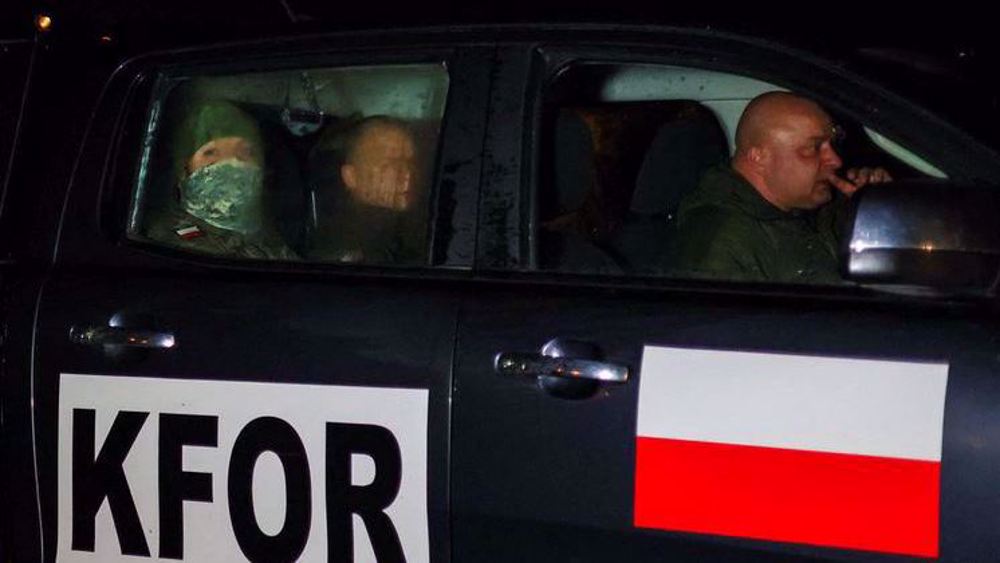
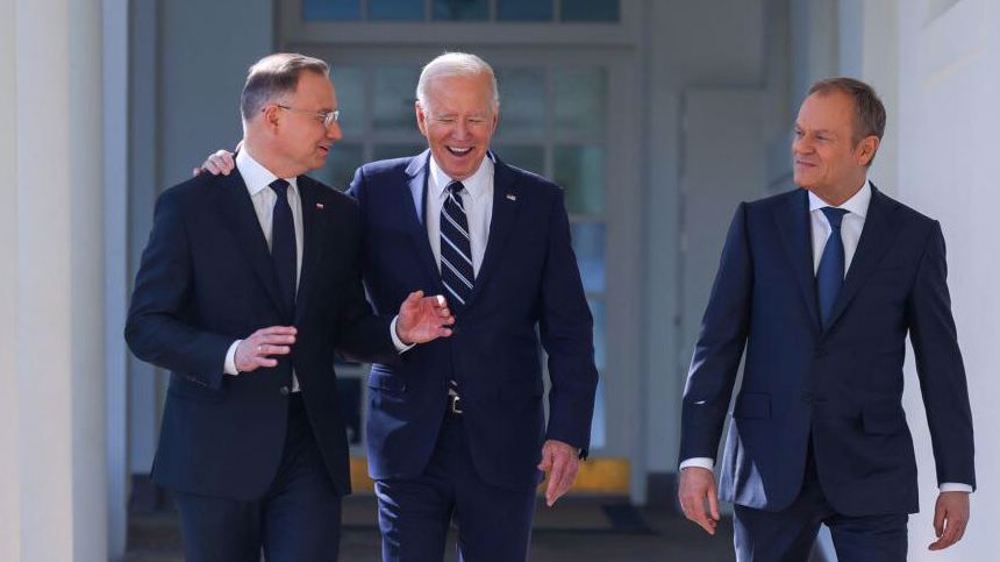
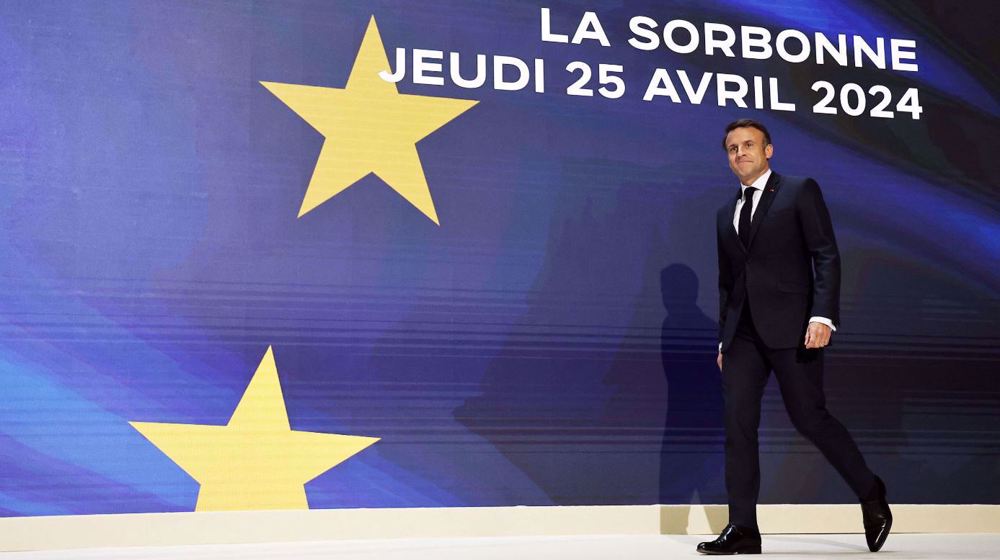
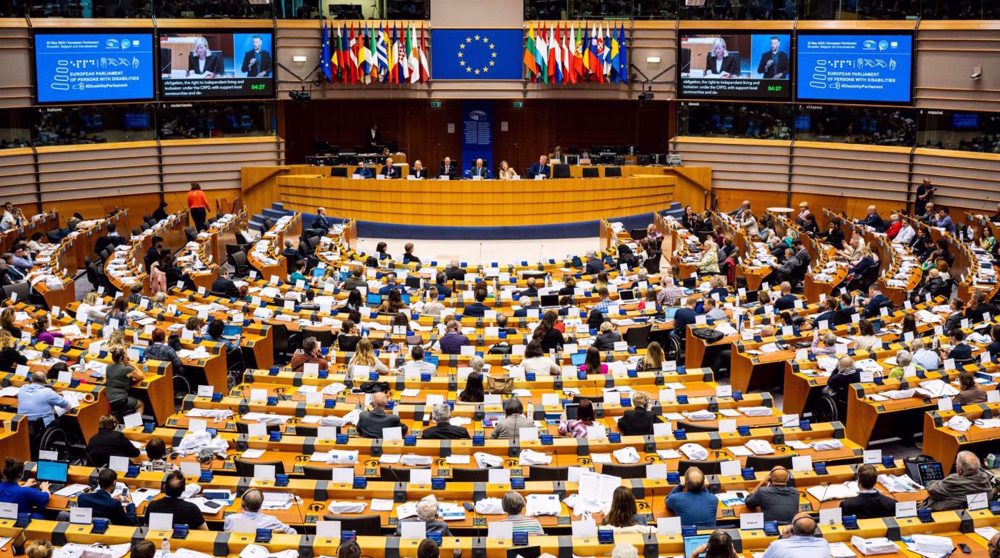



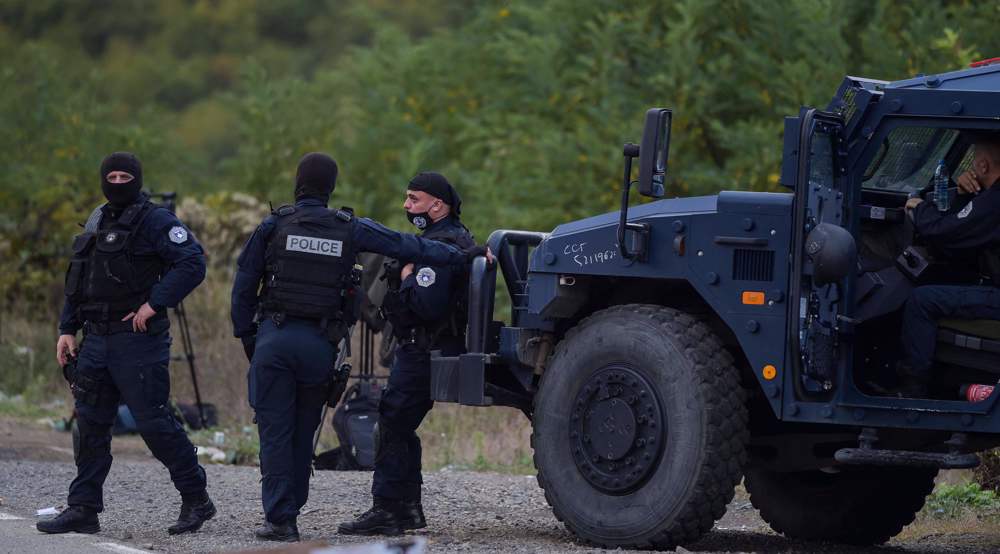
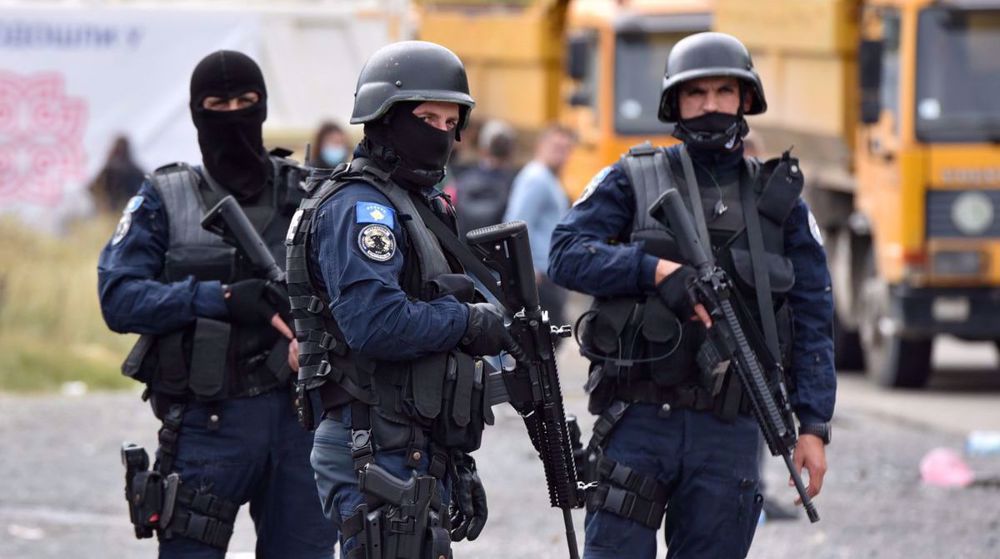

 This makes it easy to access the Press TV website
This makes it easy to access the Press TV website